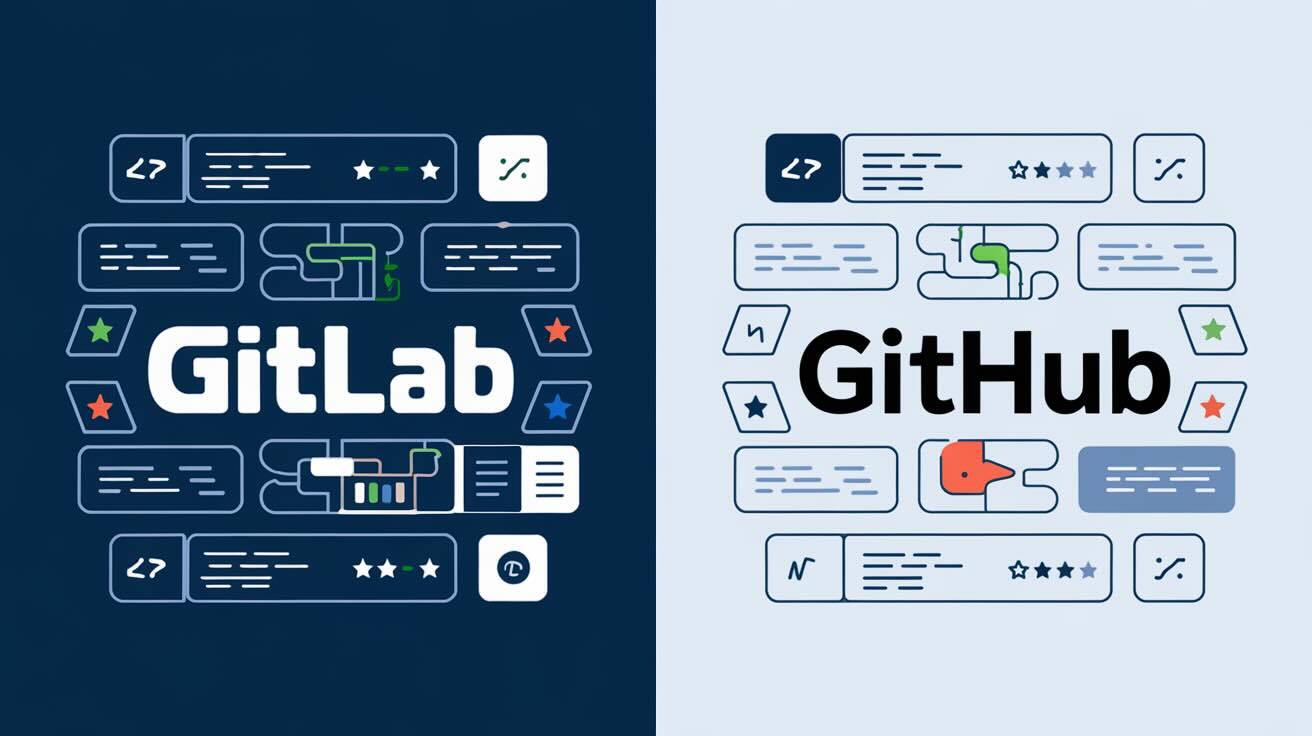In the rapidly evolving landscape of software development, selecting the right version control and collaboration platform is crucial for team productivity and project success. GitLab and GitHub have emerged as two of the most prominent solutions, each offering unique approaches to code management, collaboration, and DevOps integration.
The Evolution of Version Control Platforms
The journey of Git-based platforms reflects the broader transformation in software development methodologies. What began as simple code repositories has evolved into comprehensive DevOps ecosystems that support entire software development lifecycles.
Historical Context
- GitLab: Founded in 2011, GitLab started as an open-source alternative to existing version control systems
- GitHub: Launched in 2008, GitHub quickly became the go-to platform for open-source collaboration
Deep Dive: Platform Capabilities
GitLab: The Integrated DevOps Solution
GitLab has positioned itself as a complete DevOps platform, offering an end-to-end solution that goes beyond traditional version control:
Key Features
Comprehensive CI/CD Integration
- Native pipeline configuration
- Automatic DevOps capabilities
- Built-in container registry
Security and Compliance
- Built-in security scanning
- Compliance management frameworks
- Advanced vulnerability detection
Infrastructure as Code Support
- Kubernetes integration
- Terraform state management
- Infrastructure automation tools
GitHub: The Collaboration Ecosystem
GitHub has maintained its strength in collaborative development and community engagement:
Key Strengths
Social Coding Features
- Pull request workflows
- Code review tools
- Community engagement mechanisms
Extensive Marketplace
- Thousands of third-party integrations
- GitHub Actions ecosystem
- Robust developer tools
Comparative Analysis: Technical Deep Dive
1. CI/CD Capabilities
- GitLab: Fully integrated, native CI/CD system
- GitHub: GitHub Actions with modular workflow approach
2. AI-Powered Development
Both platforms have invested heavily in AI capabilities:
- GitLab Duo: Comprehensive AI assistant with enterprise features
- GitHub Copilot: Code generation and intelligent suggestions
3. Deployment and Hosting Options
- GitLab: Flexible self-hosting, multiple deployment models
- GitHub: Primarily cloud-based with enterprise server option
Practical Considerations for Selection
When to Choose GitLab
Ideal for organizations that need:
- Complete DevOps lifecycle management
- Advanced security and compliance controls
- Self-hosting capabilities
- Integrated infrastructure automation
When to Choose GitHub
Best for teams prioritizing:
- Open-source collaboration
- Extensive third-party integrations
- Simplified workflow
- Community-driven development
Enterprise Considerations
Scalability Factors
- GitLab: Supports environments from small teams to 50,000+ users
- GitHub: Robust scaling with enterprise-level features
Compliance and Security
Both platforms offer enterprise-grade security:
- Role-based access control
- Audit logging
- Advanced protection mechanisms
Cost and Licensing Comparison
GitLab Pricing Tiers
- Free Community Edition
- Premium: $29/user/month
- Ultimate: Custom enterprise pricing
GitHub Pricing Structure
- Free tier for public repositories
- Team: $4/user/month
- Enterprise: $21/user/month
Emerging Trends and Future Outlook
AI Integration
Both platforms are rapidly developing AI-powered features:
- Intelligent code completion
- Automated code review
- Predictive development analytics
DevOps Automation
Increasing focus on:
- Simplified workflow configurations
- Enhanced collaboration tools
- Seamless integration with cloud services
Hybrid and Multi-Platform Strategies
Many advanced teams are adopting flexible approaches:
- Using multiple platforms for different project needs
- Implementing cross-platform workflows
- Leveraging unique strengths of each solution
Pro Tips for Platform Selection
- Assess your specific project requirements
- Consider team size and collaboration needs
- Evaluate long-term scalability
- Test platforms with small pilot projects
- Consider future integration capabilities
Conclusion: Making the Right Choice
There's no universal "best" platform. The ideal solution depends on your specific organizational context, development methodology, and strategic objectives.
Recommendation Framework
- Small, Agile Teams: GitHub might offer more flexibility
- Enterprise with Complex Workflows: GitLab provides comprehensive solutions
- Open-Source Projects: GitHub remains the primary ecosystem
Beyond the Platform: Complementary Tools
Consider how your version control platform integrates with:
- Deployment tools
- Monitoring solutions
- Project management systems
Call to Action
Evaluate your current development workflow. Conduct a thorough assessment of GitLab and GitHub's capabilities. Consider a trial or pilot project to make an informed decision.
Want to streamline your deployment process further? Explore how complementary tools can enhance your version control strategy and continuous deployment workflows.
Seamless Deployment with DeployHQ
Both GitHub and GitLab work exceptionally well with DeployHQ, providing developers with a streamlined deployment experience. DeployHQ offers robust integration capabilities with both platforms, allowing you to:
- Automatically trigger deployments from your Git repositories
- Support multiple branches and environments
- Configure complex deployment workflows
- Receive real-time deployment notifications
- Manage staging and production environments with ease
Regardless of whether you choose GitHub or GitLab, DeployHQ ensures a smooth, efficient deployment process that complements your version control strategy. Our platform's flexibility means you can leverage the unique strengths of either Git hosting service while maintaining a consistent, reliable deployment workflow.
